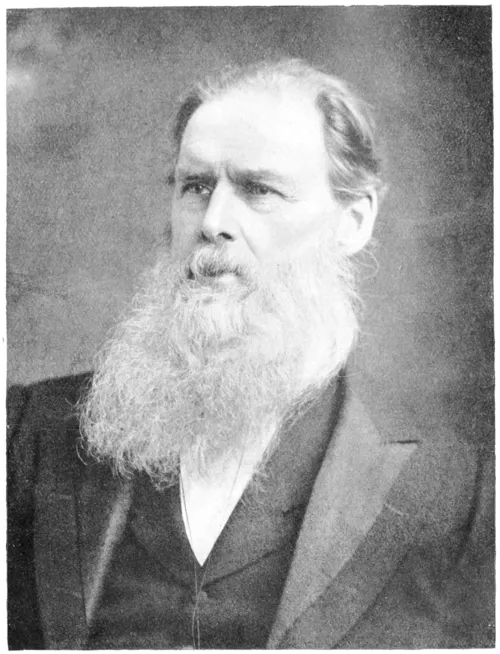
Name: Edward Burnett Tylor
Profession: English anthropologist
Birth Year: 1832
Death Year: 1917
Notable Contributions: Considered the founder of cultural anthropology and introduced the concept of 'culture' in anthropology.
Key Works: His notable works include 'Primitive Culture' and 'Anthropology: An Introduction to the Study of Man and Civilization'.
1832 – Edward Burnett Tylor, English anthropologist (d. 1917)
Edward Burnett Tylor: The Pioneer of Cultural Anthropology
Born in the bustling heart of a rapidly industrializing England in 1832, Edward Burnett Tylor emerged into a world buzzing with intellectual fervor. His early life was marked by an insatiable curiosity about the diverse cultures that peppered the globe a fascination sparked, perhaps, by tales of adventure and exploration shared by his father. As a child, he might have often gazed at maps and daydreamed about distant lands filled with unfamiliar customs.
However, unlike many of his contemporaries who followed conventional paths in education and profession, Tylor's journey would lead him to the uncharted territories of human culture. At just 23 years old, he found himself on a pivotal expedition to Mexico where he first encountered indigenous peoples living within richly textured social frameworks far removed from the industrialized norms back home. This experience would serve as a catalyst for his lifelong commitment to understanding humanity’s diverse cultural expressions.
Upon returning to England after years abroad in places like Cuba and Mexico, Tylor embarked on an academic career that defied traditional boundaries. He began writing extensively about what he termed 'primitive culture,' using it as a lens through which he could analyze human behavior across different societies. His seminal work "Primitive Culture," published in 1871, argued provocatively that all cultures evolve along similar trajectories from savagery through barbarism to civilization an idea that ignited debates and controversy among scholars worldwide.
Despite this radical notion of cultural evolution which many later criticized for its ethnocentric bias Tylor undeniably laid down the foundational principles for what would become modern anthropology. He emphasized not only the significance of studying living societies but also insisted on understanding cultural beliefs as complex systems deserving respect rather than ridicule.
Ironically, while advocating for respect toward diverse cultures through anthropological research during an era rife with colonial attitudes and prejudices, Tylor often found himself criticized for perceived naivety regarding British imperialism's consequences on indigenous populations. Who knows how much anguish he felt seeing what was deemed 'civilization' wreak havoc upon societies deeply rooted in their traditions?
Tylor’s contributions did not merely end at theoretical discourse; his influence extended into institutional realms as well. In 1883 perhaps spurred by dissatisfaction with mainstream academia he helped establish the first university chair dedicated specifically to anthropology at Oxford University! This milestone served not only to legitimize anthropology as a field but also attracted brilliant minds eager to explore human diversity rigorously.
The man who once wandered among indigenous tribes now stood amongst esteemed scholars shaping future generations’ understanding of cultural dynamics! However profound this achievement may seem today; it came alongside struggles against outdated scientific paradigms that resisted change even from respected figures like him.
Tylor's legacy continued to unfold throughout his lifetime until his death in 1917 a year when society stood poised at yet another precipice: World War I loomed large over Europe while burgeoning movements were beginning anew elsewhere around the globe... As conflicts erupted across nations grappling with identity crises induced by war’s realities or colonial fallout the themes present within Tylorian thought seemed prescient indeed!
The significance of Edward Burnett Tylor's work resonates even today! His theories paved pathways toward more inclusive understandings regarding different cultures’ intricacies while emphasizing human commonality amid diversity a tenet worth celebrating amidst ongoing global conversations about equity and inclusion!
The Legacy Continues
If one were wandering college campuses or attending conferences devoted explicitly toward cross-cultural studies nowadays they would undoubtedly encounter echoes resonating from Tylorian philosophies blending seamlessly into contemporary discourse surrounding multiculturalism...
The importance placed upon viewing each culture within its unique context stems directly back toward those foundational ideas initiated over one hundred years ago!
A Modern Reflection
As we navigate complexities driven largely by globalization today it is almost poetic how aspects attributed originally towards defining ‘primitive’ societies are now gaining recognition again through digital platforms facilitating direct connections between peoples worldwide; thus allowing unprecedented exchanges fostering mutual appreciation regardless differences previously deemed insurmountable!


